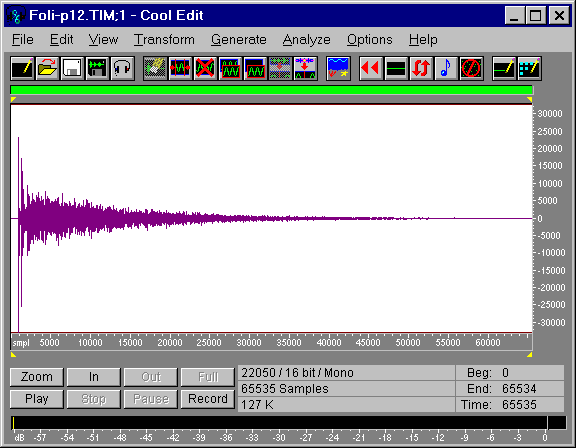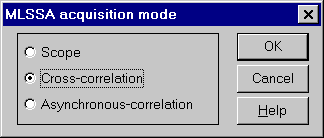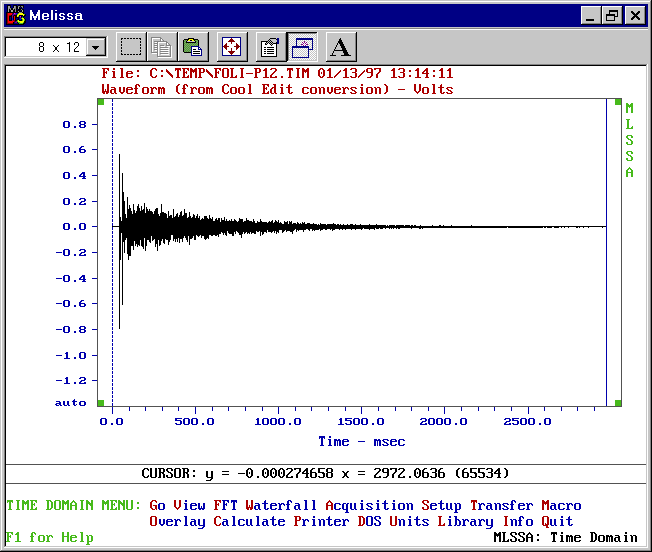MLSSA filter for .TIM files
The MLSSA (pronounced "Melissa") system is a dedicated hardware and software tool, originally developed by Douglas Rife as a measurement tool for loudpseaker evaluation and room acoustics. It makes use of a special full-sized ISA board (named A2D160), which includes an hardware MLS-signal generator. The board has only one analog input, but it can generate the MLS signal simultaneously with the acquisition. This way the Impulse Response between the excitation signal and the microphone connected with the input is measured, and this includes both the loudspeaker Transfer Function and the reverberation of the room.
This board is accompained by a very powerful and versatile software (MLSSA.EXE). Although this is a DOS-based applications, it is still now an unvaluable tool for making computations and extracting information from Impulse Responses.
The MLSSA .TIM file format is quite strange: the inport/export filter for CoolEdit makes it possible to manage .TIM files exactly as if they were .WAV files: this can be useful for importing in Aurora Impulse Responses measured with the MLSSA system, or, on the other hand, for exporting to MLSSA Impulse Responses measured with Aurora.
For example let's start with an Aurora-measured Impulse Response. If it was stereo, we have first to separate it in two mono files, because MLSSA is a single-channel system:
 |
This file was already saved in MLSSA .TIM format, as it shown from its name.
The only point to be noted here is that, when saving the file, an "Options" button appears in the Common Dialog Box. Pressing it, the following Form is displayed:
 |
This makes it possible to select the MLSSA acquisition mode which is flagged inside the .TIM file: this way the user can "fool" MLSSA, changing the acquisition mode after a measurement is made, thus making it possible to perform computations that MLSSA does not allow for certain kinds of data (for example computing the Acoustical Parameters from Scope data).
Starting the MLSSA program and opening the converted file, it looks properly converted:
 |